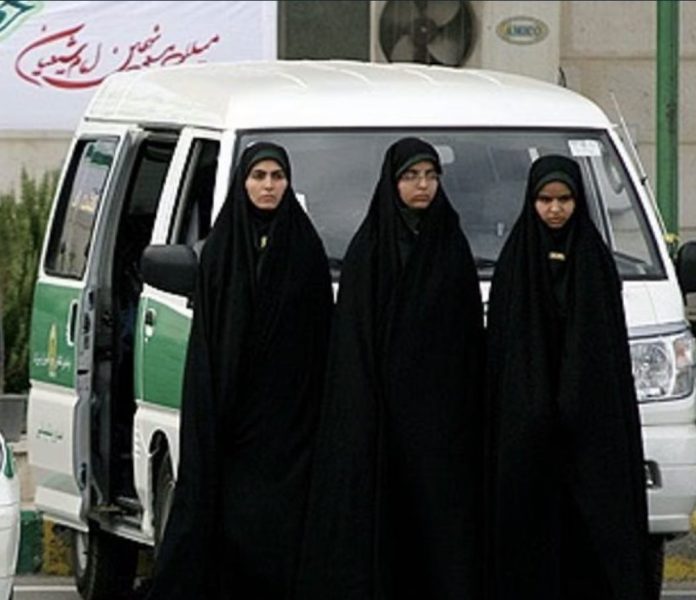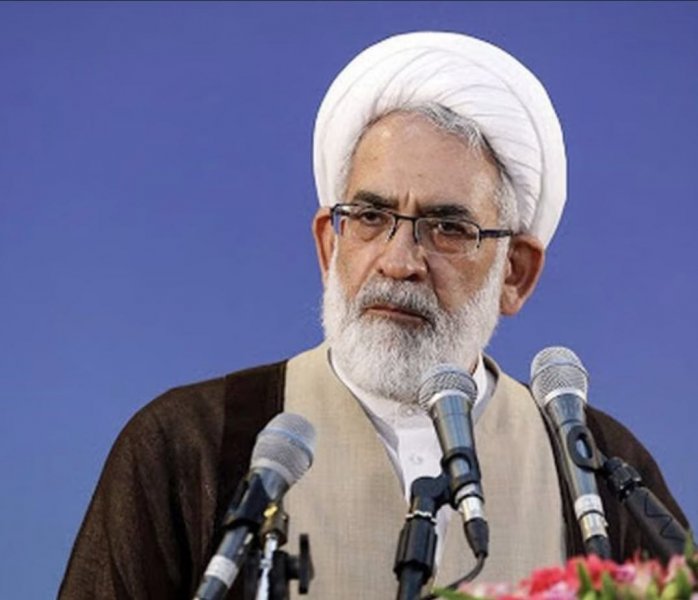Weak Hijab or Bad Hijab
According to Iran Gate, after the lenient remarks by Khamenei, the leader of the Islamic Republic, regarding those he referred to as weak hijab wearers, the Attorney General issued an order to the police to address the issue of hijab and uncovering hijab.
The Deputy Attorney General in charge of overseeing prosecutors and law enforcement across the country says a directive has recently been issued by the Attorney General’s office instructing the police to firmly deal with the uncovering of hijab nationwide.
Abdol Samad Khoramabadi announced in a note:
The crime of uncovering hijab is one of the obvious crimes, and law enforcement officers are obliged, in accordance with the note of Article 638 of the Islamic Penal Code of 1996 and the latter part of Article 44 of the Criminal Procedure Code, to arrest the perpetrators of obvious crimes and refer them to the competent judicial authorities for punishment. Recently, a directive has been issued by the Attorney General’s office instructing the police to firmly deal with the crime of uncovering hijab nationwide.
In executing the order of the esteemed head of the judiciary and the honorable Attorney General, it has also been announced to the public and revolutionary prosecutors across the country to oversee the actions of law enforcement officers in dealing with the crime of uncovering hijab, and to request from court presidents, in accordance with Article 32 and Clause P of Article 235 of the mentioned law, to sentence the perpetrators to supplementary and consequential punishments in addition to fines. It has also been announced to the heads of the judiciary across the country to urgently plan for a serious and deterrent approach to the crime of uncovering hijab.
The main punishment for the crime of uncovering hijab, according to the note of Article 638 of the Islamic Penal Code enacted in 1996, is ten days to two months imprisonment. However, since under other regulations, imprisonment of less than three months must be converted to an alternative punishment, considering Articles 23, 26, 65, and 87 of the Islamic Penal Code, courts can sentence those who commit the crime of uncovering hijab
in addition to paying a fine, to endure one or more of the supplementary and consequential punishments such as exile, prohibition from engaging in a specific profession or job, dismissal from government and public services, prohibition from leaving the country, obligation to perform free public services, prohibition from membership in political or social parties, groups, and associations, confiscation of means involved in committing the crime such as closing the place of business and seizing the vehicle, media confiscation, obligation to learn a specific profession, job, or work for a period of 6 months.
The punishment for the crime of uncovering hijab is among the grade 8 punishments, therefore according to Articles 340 and 427 of the Criminal Procedure Code, this crime is directly tried in Criminal Court Two and the court’s verdict is final and non-appealable.
The punishment for the crime of encouraging and persuading others to uncover hijab is much heavier than the crime of uncovering hijab because encouraging and persuading to uncover hijab is considered a clear example of encouraging corruption. The punishment for encouraging corruption, according to Clause B of Article 639 of the Islamic Penal Code, is one to ten years imprisonment. Therefore, courts are obliged to sentence those who encourage others to uncover hijab in any way to the aforementioned punishment.
The necessity of issuing coercive orders in a turbulent atmosphere
However, what is important beyond the legal materials and the penalties considered for uncovering hijab is the time and situation we are in and the consideration of what the relation of such orders is with the current state of society.
It seems that in an unspoken division of labor, the leader of the Islamic Republic, from a position of benevolence, seeks a policy of maximum attraction, while his appointees and the institutions under his supervision, to maintain his authority and that of the regime and to prevent the perception that the regime has retreated on the issue of hijab, adopt a strict and harsh approach to demonstrate a firm stance on the issue of hijab.

Of course, it is clear that issues such as hijab, which have become part of the identity of the political system of the Islamic Republic, are not easily adjustable and reducible, because retreating on these matters is perceived as the first fortress being conquered by opponents and protesters. As stated in many Friday prayer leaders’ speeches, after stepping back on hijab, the regime may be forced to take further steps back in this direction and retreat from other identity positions as well.
The outlook on the hijab dispute
The fundamental question, however, is about the future: which side will eventually prevail in this dispute? It seems the regime, with slight flexibility, has reduced the main conflict from bad hijab to no hijab. However, opponents who have paid heavy costs on the hijab issue and have long been engaged in civil activities and field protests over the issue of optional hijab are unlikely to be satisfied with this extent.
Those who, beyond a gender-based demand like hijab, now speak of government change, should prepare themselves for a serious battle with law enforcement forces, which today are led by a hardliner commander with a history of harsh suppression.
Whatever the case, once again, the Islamic Republic, by ignoring the demands of a significant portion of society and without considering the current conditions of society, has decided to revert to its original settings, and on the opposite side, there seems to be no sign of retreat or concession.
In this context, exclusive articles have been published in Iran Gate.
- The end of the honeymoon of optional hijab
- No hijab in the bank, yes in the national team’s celebration
- Hijab: A red line that is fading

